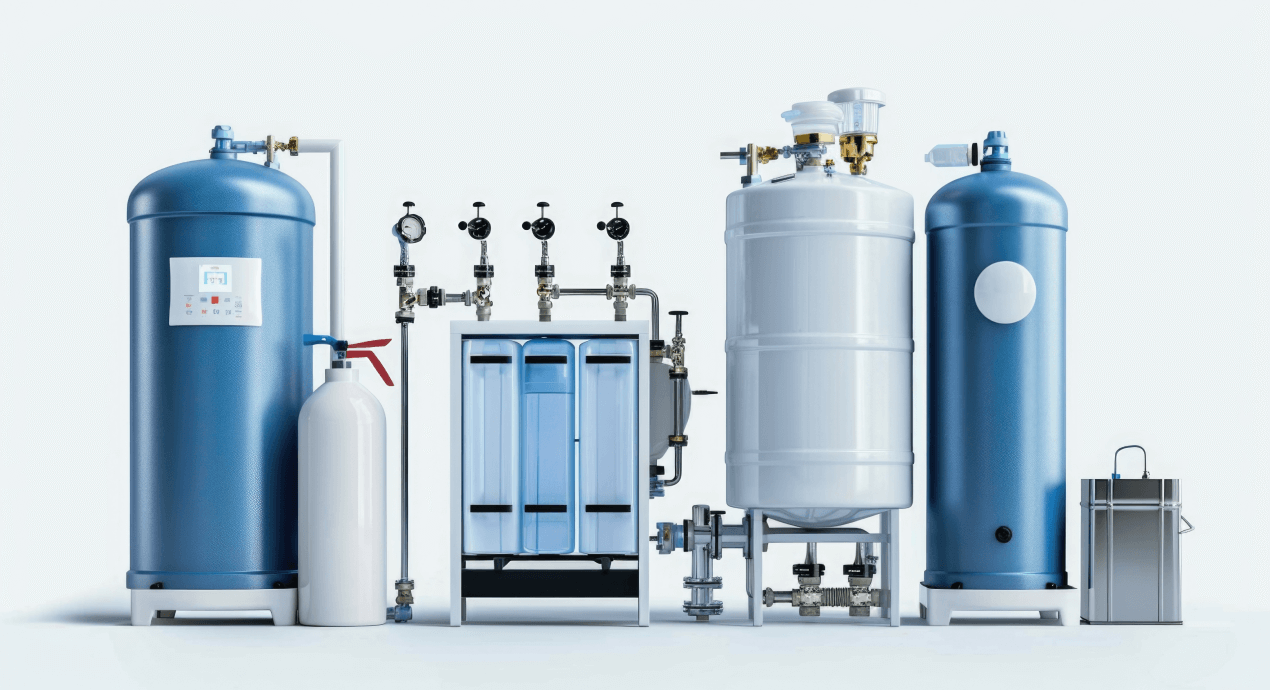
Contemplating coverage?
Subscribe to receive our emails & get
$200 OFF!
Have questions?
Call us: (833) 544-8273


Written By Rachel Cherem
Every home needs a water heating system, but many new homeowners are surprised and intimidated by the variety of potential options. There are in fact several types of hot water heaters, each with distinct advantages and disadvantages.
Maybe you're building or renovating your home. Or maybe you just want to replace or upgrade an aging or inefficient water heater. Whatever the case, Liberty Home Guard's guide will supply you with the information you need to make an informed choice about the type of water heater to install in your home.
There are several types of water heating systems available for modern residential use. Some are costlier than others; some are more energy efficient than others. A home's architecture and infrastructure may also dictate which water heater is best.
First, let's review the different water heaters available to the American homeowner. Then we'll compare and contrast the pros and cons of each.
Costs, energy efficiency, ease of installation, and other considerations vary considerably across these different water heating systems. Use the table below to determine which type is best suited for your home.
Pros | Cons | Best For | |
Storage Tank Water Heaters | • Affordable • Easy to install • Immediate supply of hot water | • Less energy efficient than modern systems • Hot water supply can run out and takes time to replenish | Older homes and buyers looking to save on upfront costs |
Tankless Water Heaters | • Generally more energy efficient than storage tank water heaters • Don't take up much space • Steady supply of hot water | • Higher upfront costs • Longer wait time for water to heat up | Homes with limited space |
Indirect Water Heaters | • Energy efficient • Can provide hot water at point of use quickly • Requires minimal space | • Dependent on a reliable boiler • Potentially poor compatibility with high flow-rate fixtures and multiple taps, faucets, and showerheads | Homes with boiler heating |
Solar Water Heaters | • Environmentally friendly • Energy efficient • Offer substantial savings in the long term | • High upfront costs • Dependent on abundant sunshine | Homeowners in sunny climates who are willing to invest money upfront for long-term savings |
Hybrid Heat Pump Water Heaters | • Exceptionally environmentally friendly and energy efficient | • High upfront costs • Costly and complicated installation • Dependent on heat from the ground or air | Homeowners in warm climates who want to invest in efficient, eco-friendly technology |
Condensing Water Heaters | • Long-term savings • Better for the environment than conventional water heaters | • Expensive to buy and install • May require frequent maintenance | Homes with existing natural gas heating systems |
Point-of-Use Water Heaters | • More energy efficient than conventional water heaters • Hot water on demand with minimal wait | • Limited to a single appliance
| Renovations or additions with a sink, shower, or tub not linked to the central water heater |
If you're building a new home or have the opportunity to swap out the water heating system in your existing home, you need to weigh several factors to identify the system best suited for your home and lifestyle.
Installation demands vary significantly across various water heaters. Installing a conventional tank heater can be an easy DIY project, but heat pump water heaters require some technical expertise.
Maintenance demands similarly differ, but there are some broad maintenance tips that can apply to almost all water heater types.
Two primary considerations for water heater safety are temperature and pressure. An ideal temperature setting is around 120°F to prevent the possibility of scalding, though some homeowners may want to push the temperature slightly higher, capping at around 140°F.
Healthy water heaters should automatically relieve themselves via a release valve when pressure builds, but such valves can malfunction or become a little sticky without proper servicing. Refer to the manufacturer's guidelines to know when and how to test the pressure valve.
It is very common for home warranty coverage to include protection for residential water heaters. The specifics of coverage can vary by policy and water heater type, but most homeowners should have no problem finding a suitable plan.
Liberty Home Guard's offerings also include much more. In addition to water heater coverage, you can cover a suite of home systems, from plumbing and electrical to HVAC. We of course support robust appliance coverage as well, and we offer a range of essential home services. Learn more by calling (833)-545-5590.
Stay Ahead of Potential
Home Mishaps!
Subscribe to our Liberty Home Guard Newsletter and gain access to exclusive content that ensures your peace of mind.